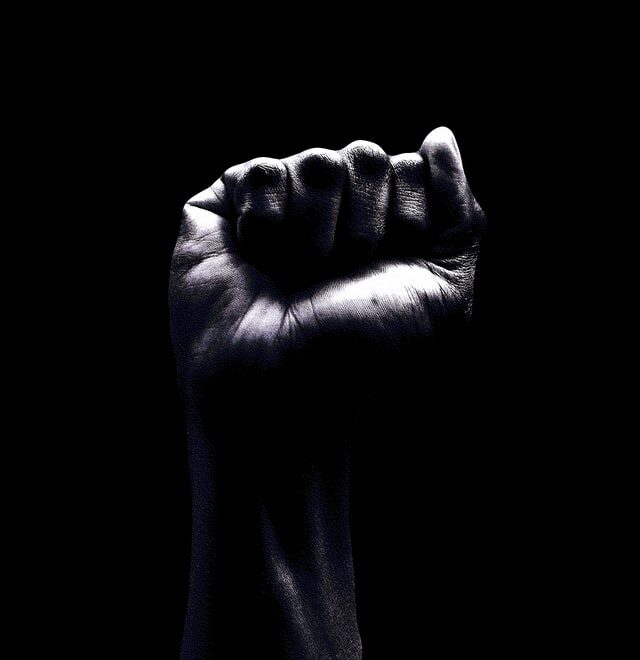Racism is a grievous sin of humanity and an abomination to the spirit. It stems from a “virus” of racial superiority that has profound negative psychological effects on the racist as well as the victim.
It instinctively incites in the racist irrational dislike and hatred towards other individuals and groups. Racism is an impediment to the development of character, of awareness, consciousness, of love and compassion, equality, fairness and justice for all. It is an obstacle to humanity’s struggle to achieve spiritual development and liberation.
Our root religions, which were at inception purer and more principled in manifestation, Judaism, Christianity, Islam, certain traditions in Hinduism and other religions, have, notwithstanding subsequent distortions, always preached a message of divine love, mercy and compassion for all. They have also preached divine justice and divine equality, i.e. the equal worth and dignity of the human being.
The core principles of these religions are a message of peace, forgiveness, tolerance, love, respect, empathy, trust and compassion for all human beings. They stress that God is in all of us, equal and identical, and we must therefore see “God in All” and “All in God” (Hindu tradition of Advaita).
They urge us to connect with “the spirit” in each other as a precondition for dealing with each other, to recognize the transcendent dignity of the human person and to strive with determination and persistence to overcome the “embedded predisposition” towards racism.
This disposition towards racism has infected the human race since colonization by the Europeans of North America, Latin America and the Caribbean, India and Africa from the 15th century. This “virulent virus” of racism persists and remains a “pandemic”.
Embed from Getty ImagesIt is therefore not only grievous, but also profoundly hypocritical, reprehensible, contradictory and a serious weakness of character for a genuinely religious person to manifest or to be unable to transcend any inclination towards racism and racial discrimination.
This does not mean that a person cannot be racially and culturally conscious or cannot believe in a multicultural, diverse society where there is unity in the midst of diversity. A person can believe in a society “where every creed and race finds an equal place” and where every individual regardless of his or her race and ethnicity is given an equal opportunity to develop his/her individual potential in a fair and facilitative political, social and cultural and economic environment.
The United Nations have led the world in opposing and condemning racism. On 29 November 1978, the general conference of the United Nations Educational, Scientific and Cultural Organization, at its 20th session, adopted and proclaimed a “Declaration on Race and Racial Prejudice”.
Among other things, it is stated that the essential unity of the human race, and consequently the fundamental equality of all human beings and all peoples recognized in the loftiest expressions of philosophy, morality and religion, reflect an ideal towards which ethics and science are converging today.
In Article 1(4) of the Declaration, it states all peoples of the world possess equal faculties for attaining the highest level in the intellectual, technical, social, economic, cultural and political development.
It urges the government and other stakeholders in all societies to use the educational resources to combat racism e.g. by including the topic as a subject in the social school curriculum. It also urges them to promote genuinely mutual respect, understanding, tolerance and friendship among groups.
Embed from Getty ImagesTrinidadians and Tobagonians must, at this stage of our development, after 58 years of independence, consider whether as a nation we need to do the following:
1. Overcome racism, tribalism and parochialism and develop a genuine national consciousness and patriotism in order to achieve unity in diversity.
2. Overcome mistrust and fear by accepting the objective reality which shows:
- That for the most part, we have established a right-wing, market-driven capitalist democracy that has accommodated the vested interests of the elite and the interests of the different racial groups – which the PNM had promised to do during the 1961 general election in Trinidad and Tobago.
- That the working-class interests, although accommodated in the welfare-state policies of successive governments, have largely been neglected. The economic policies of the successive governments have favoured corporate interest and disadvantaged the working class.
- The PNM has supported this approach notwithstanding its statement in “The People’s Charter ”, adopted by the party in 1956, that “The workers today require inducements, incentives and guarantees just as much as the investor does”. And although Dr Eric Williams, as the leader of the party, in a speech given at St. George County Council hall said: “You take from those who have had too much too long and distribute it among those who have had too little too long.” (See “Race and Nationalism in Trinidad and Tobago” p273 Selwyn Ryan, I.S.E.R, UWI 1974).
- The result of this policy has been the continuation of unfair and discriminatory employment practices e.g. recruitment, particularly for managerial positions, and low wages. It has led to a substantial increase in economic inequality between the upper- and the upper-middle-class on the one hand, and the working-class on the other. This policy has also enlarged the lower-middle-class while the upper-middle class shrank.
- That the integration and cross-cultural relations, interaction and accommodation of the African and Indian groups continue to take place, notwithstanding the underlying creative tension of ethnic conflict caused by the failure of successive governments to formulate and implement a progressive and effective multi-cultural policy.
- All ethnic groups in the society have, to a significant extent and to different degrees, been assimilated into the European and North American culture as “mimic men/women”. As a result, the European and North American culture continues to dominate the society and presents a formidable obstacle to the continuing emergence of a local culture that is free from the materialism, consumerism, neoliberalism, individualism, hedonism, violence and nihilism of the metropolitan societies and:
- The African group, unlike the Indian community, has made no significant headway in attaining a stake in the economy in its leading sectors. It is subjected to discrimination, marginalization, manipulation, exploitation and oppression, not only as a racial group but as a “have not” community occupying, for the most part, the lower income levels of the society, which they occupy with the working class of other ethnic groups.
3. Establish and implement systemic and transformative changes in education, the economy, the constitution, local government and other areas which are directed towards promoting structural transformation. These changes should lead to the sustainable development of the economy, the advancement of the poor and working people and the training of our citizens to become critical thinkers, efficient, productive, self-reliant, constructive and activist citizens and:
4. Establish and develop a progressive democracy which promotes idealism and intellectual development, social and economic justice, which establishes a social order that genuinely works for the benefit of all citizens, and in particular for the benefit of the poor and marginalized, and where the spiritual and material life of the citizens is improved.
We must, with dedication, overcome ignorance, indifference and apathy to work towards becoming an educated democracy.
A democracy in urgent deliberation, looking at the past in order to understand the present so that we can constructively deal with the future.
We must now discuss the burning issues which until resolved will obstruct our path towards our objective and vision of developing and transforming our democracy.
We must do this in open, frequent and continuous national debates on many forums that involve all the stakeholders. The debates must be frank, honest, conciliatory, questioning and respectful. And they must be conducted with the objective of finding positive solutions to the problems that affect our nation.
We must develop the honesty, the integrity, the decency and determination to concentrate on the issues in an objective manner by freeing ourselves from manipulation, prejudice, racism, tribalism, self-centredness, self-deception and self-delusion. Instead, we must rely on the proven credible facts, logic and rationality to inform positions and decisions.
This freedom of self is a prerequisite before we can make the critical shift in perception needed to reposition our society to enable us to construct a progressive democracy and to solve the persistent problems we now face.
Let us intensify the process of taking our society to the next required stage of consciousness and development. Let us rekindle the vision of the national liberation movement to establish a fair, just and egalitarian society where no group nor individual is left behind.
We will only achieve this noble purpose if we as a society can undergo the spiritual and political awakening. Attaining that consciousness will enable us to embark with courage and persistence in a constructive and positive path towards creating the peaceful, non-violent social revolution that is urgently needed, and achievable, in Trinidad and Tobago.


